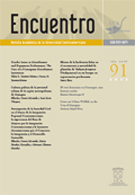Gender Issues in Microfinance and Repayment Performance: The Case of a Nicaraguan Microfinance Institution
DOI:
https://doi.org/10.5377/encuentro.v0i91.678Keywords:
Microfinance, Credit Repayment Performance, Gender, NicaraguaAbstract
Conventional wisdom and increasing empirical evidence in microfinance hold that women are better risks than men. In the present work, a logit model controlling for a range of borrower and loan characteristics was carried out to assess the validity of this statement by comparing repayment rates. The study includes a sample of loans disbursed by a Nicaraguan microfinance institution during the years 2003-2004, a period characterized by high oil prices. A dichotomous dependent variable is created, taking the value of 1 if the credit turned out to be of the best quality i.e. an “A” credit by Nicaraguan regulations, and 0 otherwise. The dependent variable is regressed on variables summarizing the characteristics of the borrower and the loan to investigate the impact of gender on repayment performance. The results provide significant evidence that female client’s repayment performance is in fact better than that of male’s at the conventional levels of statistical significance. However, the results also show that the perceived difference in gender risk is lower than what popular wisdom would suggest when borrower characteristics and other exogenous economic variables are taken into account. With the present sample, we conclude that other characteristics of the borrower as well as changes in the economic environment can have a similar or larger impact on risk than gender when it comes to repayment performance.
Downloads
912
Downloads
Published
How to Cite
Issue
Section
License
All published articles are licensed under the Creative Commons (BY, NC, SA), in the following terms: no commercial use of the original work or any derivative works, distribution of which must be done with a license equal to that which regulates the original work. This does not condition that the authors maintain their rights without restrictions. The journal allows authors to retain publication rights without restrictions.

Encuentro is licensed under a Creative Commons Attribution-NonCommercial-ShareAlike 4.0 International License.

